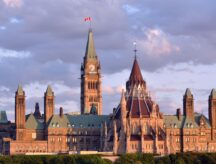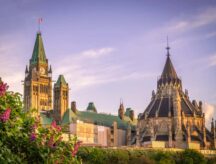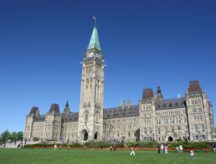Will Canada lift its travel restrictions on July 1?
The question of whether Canada will lift its coronavirus travel restrictions on July 1, 2020 is on the minds of immigration professionals and prospective immigrants around the world.
Whether you are an immigration professional, such as Canada’s immigration minister, or a prospective immigrant, the answer is simply “no one knows.” However, considering recent actions taken by the federal government, and the apparent flattening of the pandemic curve in Canada, a July 1 opening to foreign nationals may be possible.
Here is a look at the key factors that could influence Canada’s decision.
Why Canada could ease travel restrictions
The decision to lift the restrictions will simply come down to whether the Canadian government believes it can safely do so.
It will closely monitor the number of coronavirus cases around the world to see if containment efforts are proving effective. Of course, Canada’s decision will also be shaped by the effectiveness of its own efforts to contain the virus.
Health Canada says the epidemic’s curve is flattening thanks to public health measures. Beginning in mid March, provinces and territories across Canada went into lockdown, however the lockdowns have been gradually eased over the past few weeks.
There were 759 new cases of coronavirus in Canada on June 1, the lowest since March 29, which had 665 reported cases.
If this positive trend continues, we could see Canada allow more foreign travellers to enter the country.
For example, Canada could enable the entry of individuals such as new confirmation of permanent residence (COPR) holders who obtained their COPR after the travel restrictions took effect on March 18.
Find out if you are eligible for any Canadian immigration programs
In addition, Canada may look to facilitate family reunification, even if the purpose of the visit to Canada is for non-essential reasons, which is something that Canadian Prime Minister Justin Trudeau said last week is an issue currently under consideration.
Trudeau has stated that Canada recognizes the hardship that is being caused due to travel restrictions preventing family members from crossing the U.S. border into Canada.
On the other hand, he has noted that some provincial premiers are concerned with lifting restrictions with the U.S. It is not difficult to fathom that such premiers may also be wary about lifting travel restrictions with other countries as well.
However, there are a number of reasons and signs such concerns may not prevail.
Reasons to be optimistic
As mentioned above, new coronavirus cases have been stabilizing and lockdown restrictions across Canada are being lifted.
In addition, Canada has allowed some foreign travellers into the country since March 18.
Hence, come July 1, Canada may decide it can in fact safely welcome more travellers from abroad. To ensure the health and safety of Canadians, such individuals would also surely be subject to the health screenings and mandatory 14-day self-quarantine periods that current travellers must adhere to.
In addition, Canada has continued to hold Express Entry and Provincial Nominee Program (PNP) draws, as well as process work and study permits since the travel restrictions took effect. This is a strong sign that Canada does plan to gradually open up its immigration system in the coming months.
Find out if you are eligible for any Canadian immigration programs
Immigration, Refugees and Citizenship Canada (IRCC) is aiming to process as many completed study permit applications as possible in time for the start of the fall 2020 semester. This is more proof that Canada is eyeing expanding the list of individuals exempt from its current travel restrictions.
There are also strong administrative and economic arguments to be made in favour of easing the restrictions.
On the administrative side, Canada will want to welcome more foreign travellers as soon as it is safe for it to do so to avoid overburdening the immigration system. The longer the restrictions are in place, the greater pressure there will be on IRCC and Canadian diplomatic missions due to the backlog of individuals waiting to enter Canada.
From an economic point of view, welcoming more individuals into Canada after July 1 will help to support the country’s economic recovery, a point that Canada's immigration minister Marco Mendicino has stressed on numerous occasions over the past few weeks.
International students, for instance, contribute nearly $22 billion annually to the Canadian economy and support 170,000 Canadian jobs.
Welcoming more foreign travellers will help to stimulate more economic activity as such individuals make contributions as workers and consumers.
Safety is the main priority
Of course, public safety is more important than the administrative and economic implications of the travel restrictions.
However, the flattening of the curve in Canada suggests that the country can effectively strike a balance between the three considerations come July 1.
Find out if you are eligible for any Canadian immigration programs
© 2020 CIC News All Rights Reserved
- Do you need Canadian immigration assistance? Contact the Contact Cohen Immigration Law firm by completing our form
- Send us your feedback or your non-legal assistance questions by emailing us at media@canadavisa.com







